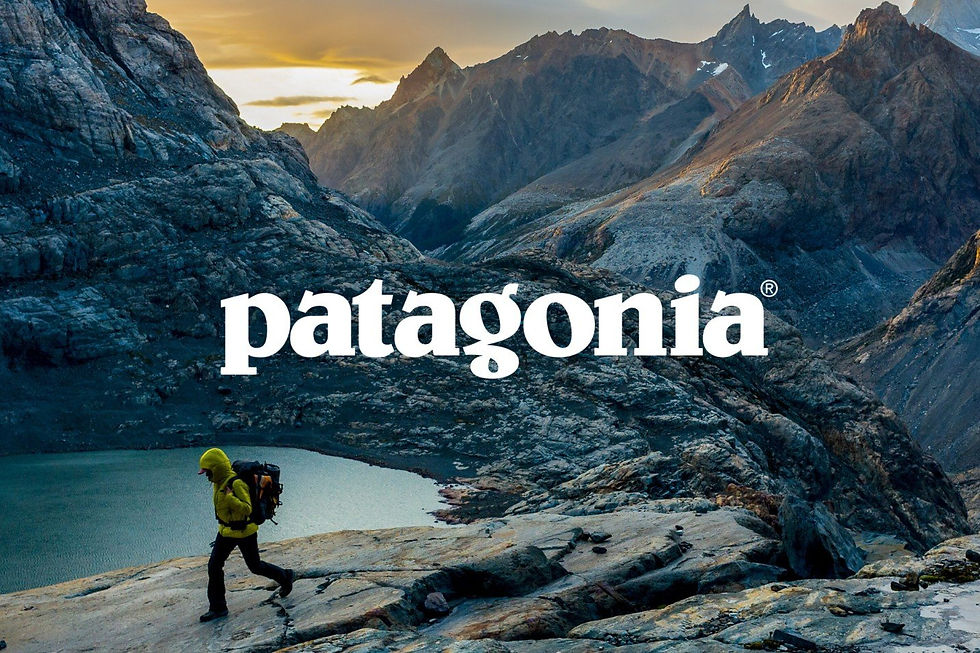Patagonia’s Positive Influence on the Fashion Industry
- Robert Andrews
- Sep 14, 2024
- 3 min read
Updated: Sep 20, 2024
Fast fashion is causing significant harm to society and the environment through unethical labor conditions and wasteful production practices. One brand that stands out and exemplifies the prioritization of sustainability and social responsibility is Patagonia. They act as an ideal model for ethical fashion that benefits both the planet and people.

The fast fashion industry is known for its negative impact on society and the environment. Prioritizing profits over ethics and sustainability, many brands rapidly produce large quantities of products, typically made of cheap material, to keep up with frequent trend shifts. This business model has been proven to be highly wasteful and leads to the overproduction of clothes that are often worn only a few times and then discarded. These garments are typically made from unsustainable materials that take hundreds of years to break down in landfills, adding to our global environmental degradation and pollution issues. Along with its result of ecological degradation, fast fashion relies on unethical labor practices. Many brands outsource their production to factories in economically developing countries, where wages are low and labor laws are lenient. Many workers face unsafe working conditions and are paid far below living wages. These exploitations directly result from fast fashion’s attraction towards low-cost production. Despite these severe issues, brands continue to operate without regard for their destructive actions.
Conversely, Patagonia prioritizes long-term impact over short-term profit, making it an ideal model for responsible and ethical fashion production. Founded in 1978 by Yvon Chouinard, the brand commits to using ethical production, sustainable materials, and helping the environment. Providing transparency to its buyers, this company openly communicates its efforts about the environmental implications of its products. Using reclaimed materials, such as polyester from recycled water bottles and organic cotton, shows their dedication to sustainable resourcing. Patagonia’s “Worn Wear” program is a primary example of its commitment to waste reduction and repurposing products. This program encourages consumers to reuse, resell, and repair their clothing and gear, ultimately extending the product’s lifespan. By reducing the need to buy new products and minimizing waste, Patagonia rewards its buyers by helping them think ethically and sustainably.
In Patagonia’s 2019 Sustainability Report, founder Yvon Chouinard explains, “Everything we make pollutes. The best thing we can do for the planet is cut down on consumption, and the best way to do that is to make products that last a really long time. We ask customers to think twice before they buy our jackets, to care for them, repair them, and if they no longer need them, return them to us. We’ll resell them or recycle them into something new. Our goal isn’t growth for growth’s sake; it’s to build the best product while causing the least amount of harm. In doing so, we hope to influence other companies to do the same.”
In contrast to the methods prevalent in fast fashion industries, Patagonia exemplifies a blueprint for achieving profitability while upholding social and environmental responsibility. They have proven that business can be run ethically while fostering a connection between customers and the environment. Patagonia’s strategy demonstrates that fashion can uphold standards without harming the environment or exploiting laborers. The emphasis on sustainability and ethical manufacturing sets an example in contrast to the fast-paced fashion sector’s norms of prioritizing convenience and profit. Patagonia is leading the charge toward a fashion industry that is both sustainable and fairer in today’s world, driven by profit and convenience.




Comments